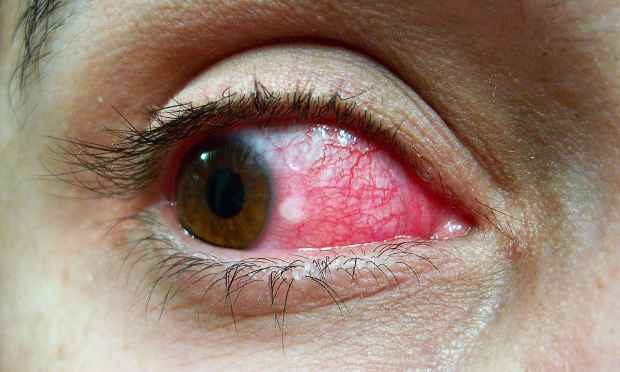Is Chlorine Harmful for Skin? Read this Before Swimming!
When you shock the pool, you add high amounts of chlorine to kill bacteria and organic matter. But even when you are doing your general pool maintenance, you still need to use chlorine.
But, do you know how chlorine affects your skin? Do you also know how chlorine affects blonde hair?
Without mincing words, I think you should know that chlorine is bad for the skin. When you swim in a chlorinated pool, the chlorine will make the water acidic, and unfriendly to the skin. Also, chlorine strips away the natural oil layer on the skin. In turn, this exposes the skin and makes it too dry, and if you have tiny tears, they can get worse and bacteria can enter your bloodstream.
It can help when you can cover up when swimming, for instance, by wearing leggings for swimming. However, there are more things you need to know to protect yourself.
Here, we shall look at different problems that chlorine causes and how to protect your skin:
1. Skin irritation

This is one of the most common complaints from swimmers. The chlorine gives them mild-to-severe skin irritation. The skin reacts with the chlorine in various ways, but most notable is how it interrupts the natural fat layer of the dermis.
It reacts with the dermis layer because it is an oxidizing agent. Therefore, it is possible to feel too dry and scratchy when you get out of the pool, and you don’t rinse yourself with clean water immediately.
The chlorine reacts with the skin chemically, giving you mild dryness if you have good skin. However, if you have sensitive skin, you could experience serious irritation with prolonged scratching bouts.
Something to note: The recommended range of 1 to 5 PPM (parts per million) of chlorine to add to the water can cause skin irritation. The severity of the irritation depends on how sensitive your skin is.
2. Chlorine makes skin conditions worse
While you can swim in chlorine pool with a yeast infection, you need to be extra careful if you have a skin condition such as eczema.
How chlorine reacts with eczema
Most people who have eczema experience a soothing feeling on their skin when they swim. It is because of the chlorine, as it removes the bacteria from the skin, thus reducing the effects of the eczema.
However, some eczema victims experience irritation when they get in the swimming pool. This can happen, whether they swim in a chlorine or saltwater pool.
How chlorine reacts with acne
Swimming in a chlorine pool can help with acne. Since it has a chemical reaction on the skin, it kills the bacteria that cause acne problems.
However, if you have open pustules or open sores on your skin as a result of the acne, the chlorine in the water is going to cause irritation.
Whether you feel irritation or not when swimming with acne, you should rinse your body with clean water when you get out of the pool.
How chlorine reacts with psoriasis
Psoriasis causes extra dryness in the skin. As usual, the excess dryness can cause tiny tears in the skin, and when exposed to chlorine, you might experience irritation. Actually, dry skin is a problem even for healthy people.
For most people with psoriasis, they feel soothing on the skin when they swim. This is because the chlorine kills the bacteria that may be lurking on the skin.
3. Chlorine irritates the eyes

Not only does chlorine irritate the eyes when you let the water get in, but it can also make you sick if you swallow swimming pool water.
The skin around the eyes is usually thinner than the rest of the body. Therefore, if chlorine makes it too dry, it can easily become inflamed.
Overall, it is just best to prevent the water from getting to your eyes. You can do this by wearing swimming goggles. The good thing is that you can get swim goggles that have nose covers, so you can also prevent the irritating chlorine water from going inside you.
Some people’s eyes react badly to chlorine, which you can tell by their itchiness and redness. In rare cases, you might even have swollen eyes.
Do not swim with contact lenses because chlorine damages them.
4. Skin can dry and shrivel
When you are experiencing a skin chlorine reaction, you will see your skin start to shrivel. Well, this will not happen to every part of your skin, but rather, it will happen to your fingers.
If you look at the fingers and notice that the skin looks dry and pulled up around the nails, that is the chlorine affecting you.
Because the chlorine in the water can react with the other skincare products that you apply to the skin, you might experience different things. For instance, if you apply sunscreen for swimming, you do not know what reaction will occur when you get in the water.
Thus, to rule out any reaction between the chlorine and the skincare products causing harm to your skin, try swimming a few times a week without applying anything to the skin.
Also, make a habit of getting into a freshwater shower immediately after swimming. This is good for your swimsuit fabric, and it is good for your skin.
5. Chlorine can cause skin discoloration
Your skin having a tanned appearance is very common with regular swimmers. This “tan” appears as a result of the chlorine in the water, as opposed to the sun.
Of course, depending on skin and body type, some people might experience more discoloration than others. To some people, the discoloration might not appear at all. Anyway, it is hard to tell whether the slight color change was caused by the sun or by the chlorine.
6. Fast aging
If chlorine can make the skin dry, well, dryness is one of the symptoms of skin aging. If you have determined that the chlorine in the water makes your skin dry, you need a better skincare routine.
The dryness of the skin occurs because the chlorine strips away the skin’s natural moisture. This leaves the skin vulnerable not only to cracking but also to allowing bacteria to get in.
Tips to protect your skin from chlorine effects
Chlorine is bad for your skin, as we have established here. Now, since you cannot swim several times a month, it is best that you find something to do about the chlorine.
Here are a few solutions to help you keep the skin safe from chlorine damage:
1. Shower and get in the pool while still wet
Showering before getting in a pool is one of the recommended pool safety regulations. Get in your swimsuit and take a shower in it. Remember to also make your hair wet, and then wear your swimming cap while it is still wet.
Since the skin absorbs water, when it has already absorbed the fresh water from the shower, it is not going to absorb much of the chlorine water.
2. Shower immediately after getting out of the pool
When you are done swimming, hop into the shower and clean out your skin with fresh water. This will strip off any chlorine that was clinging to your skin. It is also a good practice because people pee in swimming pools, so the water is dirty.
3. Moisturize the skin
A skin that is not well cared for is going to sustain damage from chlorine easily. Therefore, adopt a good skincare routine and follow it, even when you are not swimming.
Regular moisturization of the skin makes it stronger, so it will not be easily affected by the chlorine and other pool chemicals that it will be exposed to.
4. Apply barrier creams on your skin
As their name suggests, barrier creams create a barrier between the skin and the elements that cause harm to it. In this case, applying a barrier cream is going to protect the skin from the chlorine water. It works in the same way as sunblock, which creates a protective barrier against the sun.
5. Swim in freshwater only
If the skin irritation that you experience is too much, well, you can consider avoiding swimming in chlorinated water altogether.
If you have an above ground swimming pool, inflatable swimming pool, or an in-ground type of pool, you can use fresh water.
Since chlorine is used to clean the pool and kill microbes, you will need to empty the water in your inflatable pool often.
Wrapping it up
There are many health benefits of swimming, so you really do not want to avoid swimming because of the chlorine side effects on your skin.
If you have skin issues whenever you swim, it might be time to see a dermatologist. That way, you can rule out any other causes of your skin problems.
Try doing the things we have proposed here, including wearing swimming socks, wetsuit for swimming, and even gloves. Before you wear them, soak them in fresh water so that they don’t absorb a lot of chlorinated pool water.
